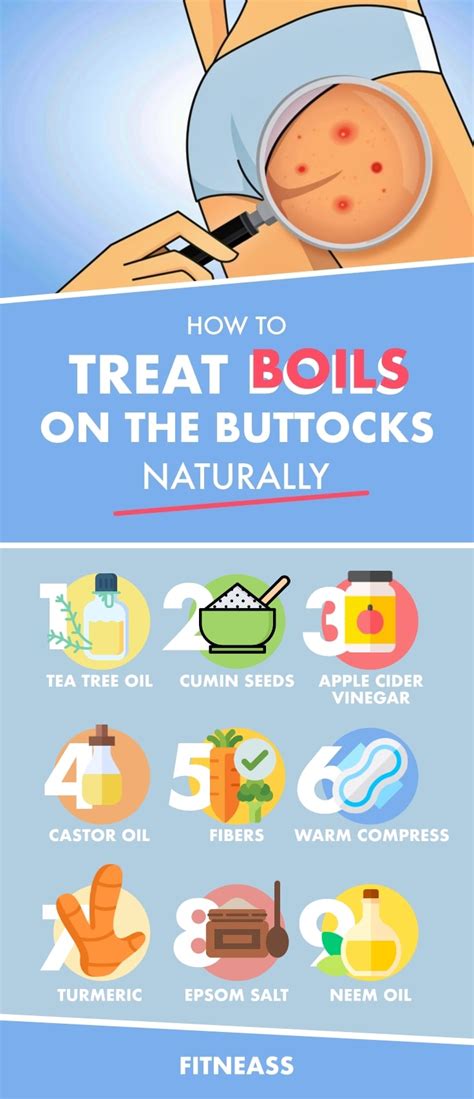How to Get Rid of a Boil: Home Remedies and Medical Treatments
Boils, those painful, pus-filled bumps under your skin, can be incredibly irritating. They're caused by bacterial infections, usually Staphylococcus aureus, and often appear on the face, neck, armpits, buttocks, or thighs. While most boils heal on their own within a week or two, knowing how to treat them effectively can significantly reduce discomfort and prevent complications. This guide explores home remedies and when to seek medical attention.
Understanding Boils: Causes and Symptoms
Before diving into treatments, let's understand what causes boils and how to identify them.
Causes: Boils develop when bacteria infect hair follicles or sweat glands. Factors that increase your risk include:
- Poor hygiene: Not regularly cleaning the skin can allow bacteria to thrive.
- Weakened immune system: Individuals with compromised immune systems are more susceptible.
- Skin irritation or injury: Minor cuts, scrapes, or ingrown hairs can create entry points for bacteria.
- Diabetes: Uncontrolled diabetes can impair wound healing and increase the risk of infections.
Symptoms: Recognizing a boil is usually straightforward. Common symptoms include:
- Redness and swelling: The affected area becomes inflamed and visibly red.
- Pain and tenderness: Boils are typically painful to the touch.
- Pus-filled bump: A central pus-filled area develops, often with a yellowish or whitish head.
- Fever and chills (in severe cases): These systemic symptoms indicate a more serious infection.
Home Remedies for Boils: When to Try Them
Several home remedies can help manage boil symptoms and promote healing. However, it's crucial to remember that these are supplementary and not a replacement for medical advice. If your boil is severe, worsening, or accompanied by systemic symptoms, see a doctor immediately.
1. Warm Compresses: The Gentle Approach
Applying warm compresses several times a day is a cornerstone of boil treatment. The warmth increases blood flow to the area, promoting drainage and healing.
- Method: Soak a clean cloth in warm (not hot) water, wring it out, and apply it to the boil for 15-20 minutes. Repeat this several times a day.
2. Epsom Salt Soaks: Drawing Out the Infection
Epsom salt soaks can help draw out the pus and reduce inflammation.
- Method: Dissolve 1-2 tablespoons of Epsom salt in a bowl of warm water. Soak the affected area for 15-20 minutes, several times daily.
3. Tea Tree Oil: A Natural Antiseptic
Tea tree oil possesses antibacterial and anti-inflammatory properties. Use with caution, as it can irritate sensitive skin. Always dilute it with a carrier oil like coconut or olive oil before applying.
- Method: Dilute a few drops of tea tree oil in a carrier oil and apply a small amount directly to the boil using a cotton swab.
When to Seek Medical Attention
While many boils heal naturally, certain situations necessitate professional medical care:
- Large or multiple boils: These might require antibiotics or surgical drainage.
- Boils that don't improve after a week or two: This suggests the infection might not be resolving on its own.
- Boils on the face, spine, or near joints: These areas require careful management to prevent complications.
- Signs of a serious infection: Fever, chills, widespread redness, or significant pain indicate a more serious condition.
- Recurrence of boils: Frequent boil occurrences suggest underlying issues that need addressing.
Preventing Boils: Proactive Steps
Preventing boils involves good hygiene and healthy lifestyle choices:
- Regular handwashing: Wash your hands frequently, especially after touching a boil or any open wound.
- Keep skin clean: Shower or bathe regularly to remove dirt and sweat.
- Avoid sharing personal items: Don't share towels, razors, or other personal items to prevent the spread of bacteria.
- Manage underlying conditions: Controlling diabetes and other immune-compromising conditions can reduce your risk.
By understanding the causes, symptoms, and effective treatment options for boils, you can better manage this common skin condition and promote faster healing. Remember to consult a doctor if you have concerns or experience any complications.
